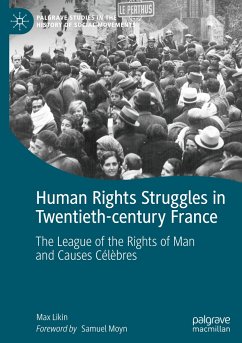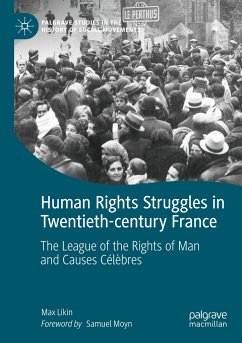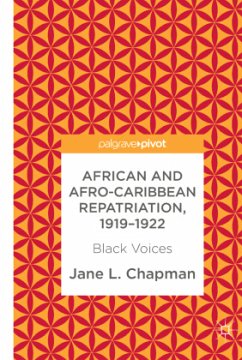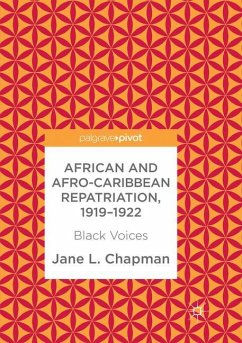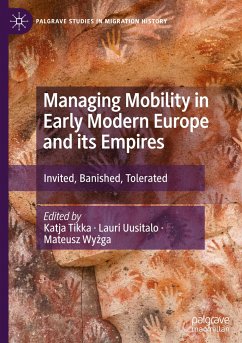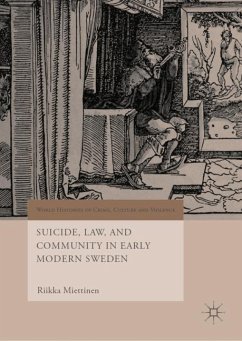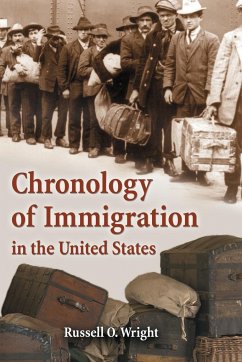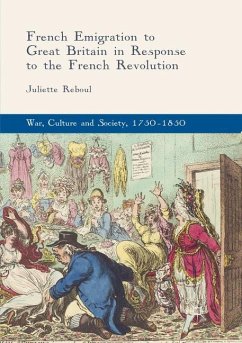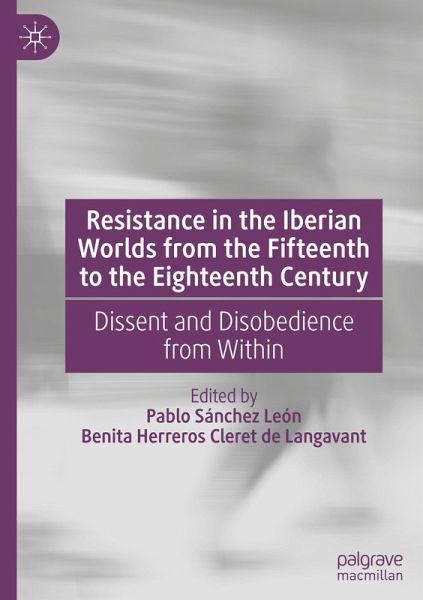
Resistance in the Iberian Worlds from the Fifteenth to the Eighteenth Century
Dissent and Disobedience from Within
Herausgegeben: Sánchez León, Pablo; Herreros Cleret de Langavant, Benita

PAYBACK Punkte
49 °P sammeln!
This book highlights the broad scope and span of resistance as a contentious practice in the early modern Iberian world. In this context, from the late Middle Ages onwards, resistance, rooted in the political and legal language of the old regime that provided agents with legitimacy and resources for their actions, occurred mainly within the established jurisdictional system. These resources for litigation and demand made resistance a widespread kind of contesting practice related to wider protests.The authors assess the wide array of actions developed by individuals and communities to preserve...
This book highlights the broad scope and span of resistance as a contentious practice in the early modern Iberian world. In this context, from the late Middle Ages onwards, resistance, rooted in the political and legal language of the old regime that provided agents with legitimacy and resources for their actions, occurred mainly within the established jurisdictional system. These resources for litigation and demand made resistance a widespread kind of contesting practice related to wider protests.
The authors assess the wide array of actions developed by individuals and communities to preserve their rights and identities, demonstrating how the Portuguese and Hispanic polities and their colonial possessions experienced resistance from below over a long period of change that marked the rise of more complex communities and institutional systems. This book offers a comprehensive overview of the variety of forms and expressions of resistance developed in different social, cultural, and territorial contexts, thus shedding additional light on the relationship between order and conflict within early modern European empires.
Chapter 3 is available open access under a Creative Commons Attribution 4.0 International License via link.springer.com.
The authors assess the wide array of actions developed by individuals and communities to preserve their rights and identities, demonstrating how the Portuguese and Hispanic polities and their colonial possessions experienced resistance from below over a long period of change that marked the rise of more complex communities and institutional systems. This book offers a comprehensive overview of the variety of forms and expressions of resistance developed in different social, cultural, and territorial contexts, thus shedding additional light on the relationship between order and conflict within early modern European empires.
Chapter 3 is available open access under a Creative Commons Attribution 4.0 International License via link.springer.com.



